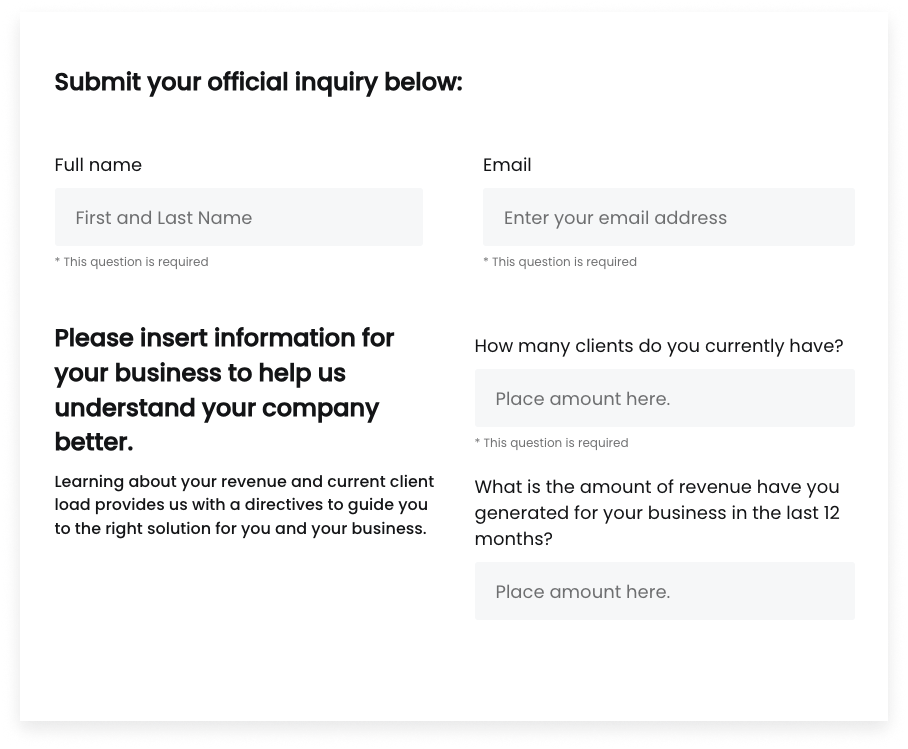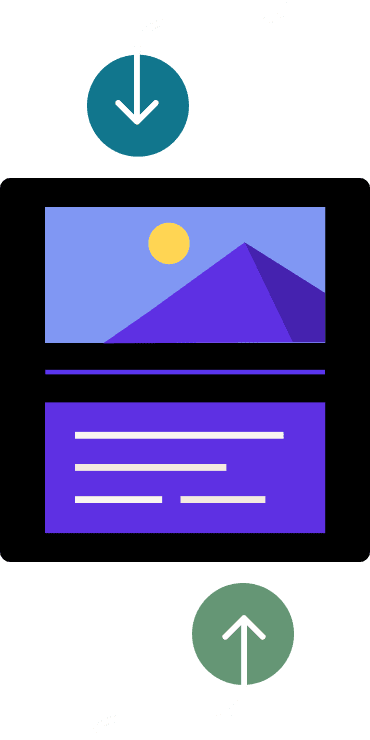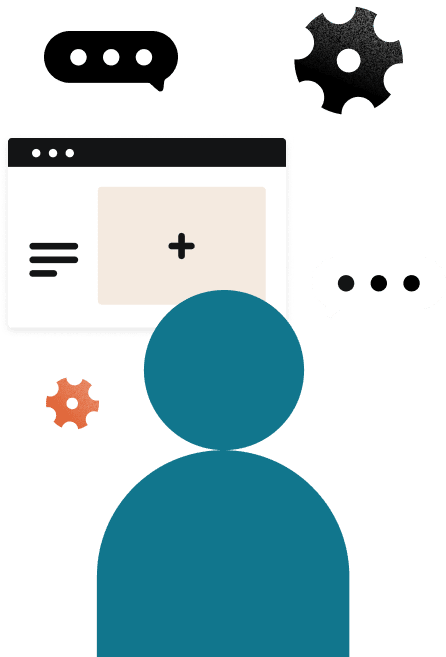The sales discovery process differs for every business. But regardless of your industry, these ten discovery questions will help you conduct a successful discovery call and kickstart your sales process.

Discovery means different things to independent business owners. For one, it could be the process where a prospect qualifies themselves through a well-thought-out contact form on your website. For another, it might mean scheduling a phone call to ensure your offerings will best meet the prospective client’s needs.
Whatever your understanding of the discovery phase, one thing holds true for all independent business owners. This is the phase that makes or breaks a potential customer’s interest and helps them through the decision-making process. It also gives you enough information to understand your prospects and what they need.
Read more on what to ask new leads throughout your discovery process, plus get tips from business owners like you.
Jump to:
- What to get out of your discovery calls
- Questions that you can ask before you hop on a call
- Tell me about yourself and your business
- What is your priority for our call today?
- What are your current needs?
- What are your expectations?
- What are your challenges?
- Do you have specific goals and metrics?
- Do you have experience working with this type of business?
- Are there other stakeholders?
- What’s your communication style?
- Why listening is key
- What to do after a discovery conversation
What to get out of your discovery calls
When you ask discovery questions is entirely up to you and the cadence of your clientflow. Some people view discovery questions as an opportunity for a paid consultation, and others vet all potential clients over the phone. For either situation, there are a few questions that will give you insight into your client’s needs, wants, and qualifications.
Keep your ears open for what is not being said. Not everyone is the right fit, and a quick glimpse behind the curtain can prevent payment issues, commitment issues, chargebacks, and bad reviews down the line.
Ask revealing questions such as what brought them to this point of their journey, what they’re looking for, who they’ve worked with before, what their goals are, as well as their financial commitment and other obligations.”
– LaKenya Kopf, Certified Tech Manager at Kopf Consulting
Questions that you can ask before you hop on a call
Discovery and the purchasing process overall can easily begin before you make your first phone call. In fact, it can be a good idea to send some preliminary discovery questions to your potential client in the form of an email or contact form. This helps you evaluate potential clients ahead of time to see if it’s worth moving the sales process forward.

Some common questions you can ask before a call include:
- How did you hear about my business? This question helps you evaluate your marketing techniques, as well as get a beat on which of your previous clients might be spreading information about your business via word-of-mouth marketing.
- What is your expected timeline for this project? This helps you evaluate whether you would be able to fit the client into your existing schedule.
- What is your budget range? If you offer custom pricing, you may prefer to discuss pricing in person. But if you offer standard services, knowing your potential client’s price range can help you determine whether you’re a good fit for one another.
Once you have the answers to these questions, you’ll have a sense of the client’s overall needs and whether they’re a good fit for your business. From there, you can use the discovery call to dive into more specifics about their project requirements.
Never be afraid to ask the questions that may cause you to lose the sale! You never want to be in a situation where you are too afraid to ask how quickly something needs to be done, their overall budget, and their expectations in terms of your commitment (especially if you have a large client load). If you have someone that already has expectations outside of your limitations, you’re setting yourself up for disaster.”
– LaKenya Kopf, Certified Tech Manager at Kopf Consulting
1. Tell me about yourself and your business
One of the first goals of sales questions is to begin building a rapport with a potential new client. Asking them to tell you about themselves is a great way to break the ice. It also allows you to refresh yourself on who the client is and what their needs are. Plus, the more you can connect with the client, the more you can personalize your sales pitch.
2. What is your priority for our call today?
Asking this as one of your first sales questions allows you to make sure the client’s needs are being met and you make time for the information that matters most to them. Part of pitching your services to a client is remembering their needs come first. Asking about their biggest priority helps you get into that mindset while also guiding your discovery call in a great way.
3. What are your current needs?
This is a great question to help pivot your conversation into an explanation of some of the services you may provide. By asking about a client’s current needs, you position yourself to be able to showcase your products or services in exactly the right light.
4. What are you expecting out of a successful project?
Here’s where we step into the nitty gritty. You want to know about overarching goals for the inquiry because it’s important to provide a service that satisfies the big picture for the client. I’m not just talking to photographers, here! Even if you complete the service to the specifications of the client, if it doesn’t satisfy their goal, you’ve missed the mark.
5. What are your biggest pain points and challenges?
Aside from their overt interest in your specific services, find out the biggest challenges your prospective client is working through. When used in combination with their goals, you can position your service to solve their pain points and meet their goals.
6. Do you have specific goals and metrics you’re looking to hit?
This is one of those discovery call questions that helps you go above and beyond for your clients. It’s the sales cycle equivalent of “How do you measure success?” and it will tell you exactly what your clients hope to achieve.
Knowing your clients’ main goals allows you to do one of three things:
- Manage expectations: If your client’s goals are unrealistic, you can manage expectations up front and help them set SMART goals they are still excited about and are more likely to achieve. Setting achievable goals early empowers you to knock those goals out of the park.
- Tailor your services: When you know how clients measure success, you can tailor the services you offer to help them meet their goals. If, for example, building their email list is important to them, you know to focus on landing pages or marketing techniques that help generate new leads. On the other hand, if their goal is to improve engagement with their existing audience, you can focus less on new leads and more on client engagement.
- Develop a plan: When you know the key metrics a client is looking out for, you can develop a plan to help them achieve their goals. Without knowing their goals, any plan you develop will be created with a lot of guesswork.
7. Do you have any experience working with this type of business?
When you ask a prospect about their experience working with independent businesses like yours it opens up a few opportunities for learning. Firstly, if they have worked with one or more independent businesses that offer similar services to yours, it begs the question: why didn’t you return to them? What inspired you to find someone else? This will lend insight into how the client will handle payment, and expectations on important aspects of the business-client relationship, like communication.
This may also be a red flag for you. It’s possible this potential client is difficult to work with. Or, you may not want to start a project with a client who needs more education than you’re used to providing. If you’re a business consultant, for example, you may want to work with clients who already have a sense of their goals and strategy.
8. Are there any other stakeholders that need to be involved in a booking decision?
One of the key questions to ask in an effective discovery meeting is whether the person you’re talking to is the only decision-maker or if more stakeholders will be involved in the project. For instance, there may be a separate budget owner who will be involved with the final booking decision.
This question matters because it can help you loop in additional stakeholders in your communications in order to make the decision process more efficient for them. Plus, it can help you better understand who you’ll be communicating with throughout the project and who you can go to for different questions or needs as you’re working.
9. What’s your communication style?
You might be a proactive, analytical communicator, but that doesn’t mean that resonates with your client. Use a guiding article like this one (link it in your email or contact form) to help them determine how they prefer communication. Are they into frequent check-ups or do they what service updates just once a week? Knowing what they expect will help you help them feel like they’re in the loop.
Why listening is key for a strong discovery meeting
It’s great to be prepared with a list of relevant questions to ask your prospect. Preparation will help shape how you want to guide your call. Do not, however, let this cloud your ability to listen to your prospect’s pain points and needs. The more you can address specific areas of concern with thoughtfulness, the more your prospect will feel heard.
Keep your ears open for what is not being said. Not everyone is the right fit, and a quick glimpse behind the curtain can prevent payment issues, commitment issues, chargebacks, and bad reviews down the line.
Ask revealing questions such as what brought them to this point of their journey, what they’re looking for, who they’ve worked with before, what their goals are, as well as their financial commitment and other obligations.”
– LaKenya Kopf
Start your inquiries out on a high note (see questions one through four) then ask about funding, then end with some light-hearted, more fun discovery questions. Make sure they’re serious, then make sure they’re 100% qualified, then leave them feeling good.
What to do after the discovery conversation
Client relationship management is a big aspect of running your own business. After you’ve asked your discovery questions, there are additional steps you need to take to keep your client moving along the sales cycle and to manage your relationship respectfully.
Send a follow-up thank you email
After you’ve made the call, exchanged emails, or had a Zoom meeting, send a follow-up thank you. Send a summary of the conversation, any follow-up questions, and if the prospect is a good fit, the next steps. This is your chance to show your prospect that you were listening and are dedicated to them and their project. Send some recommendations you believe would soothe pain points.
Send a booking file
With HoneyBook, `sending booking information, an invoice, and a contract in one action is easy. Using our templates and automation, send a secure email to get everything you need to and from your client without sending back of forth emails.
You’ll be notified once the client opens the email, signs the contract, and books your services.
An optimal discovery process means business flows your way
With HoneyBook, you can automate your response to leads. Send client discovery questions and booking options to funnel leads directly to your calendar with all of the information you need to get started. Then they’re in your clientflow, and you can rest easy knowing you’ve closed the deal with as little lift as possible.
No matter where you generate the most leads, once a lead is interested in your services, it’s prudent to respond as soon as possible. This allows you to qualify them quickly with your lead discovery questions.
Using a clientflow management platform like HoneyBook means fewer emails, less client confusion, and less wasted time. The discovery phase of your clientflow is one of the most important moments for you and your prospects. Make first-touch communication, discovery questions, and onboarding easy with HoneyBook’s automated responses.





